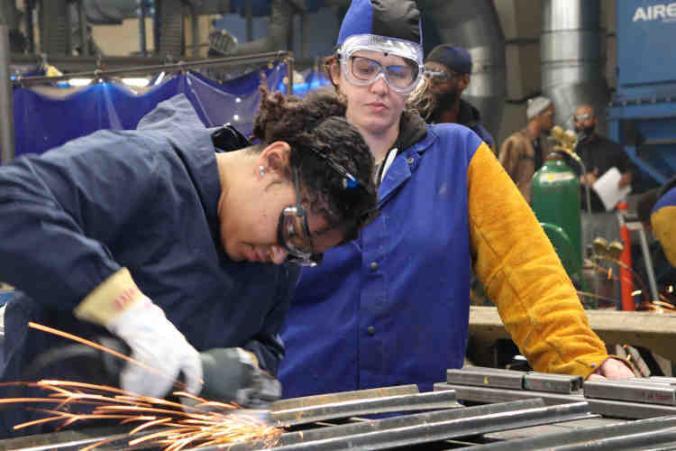After a work injury, some workers may no longer be employable. To address this, the Department of Labor and Industries (L&I) can provide workers’ compensation vocational rehabilitation services. However, L&I doesn’t have to offer vocational rehabilitation. In fact, it’s up to L&I to choose who gets these services.
Who gets workers’ compensation vocational rehabilitation benefits?
In Washington State, the Industrial Insurance Act governs the workers’ compensation system. Under the law, some workers’ compensation benefits are entitlements. What does that mean? It means that L&I must provide these L&I claim benefits to workers when they meet certain conditions. For example, if a worker has temporary total disability, then L&I must provide time-loss compensation.
Another example is when workers require medical treatment. After a workplace injury, L&I must provide proper treatment for conditions that relate to the work injury. Whenever a work injury claimant has permanent partial disability, L&I must give a PPD award. However, if workers are unable to return to work, nothing mandates L&I to provide vocational rehabilitation services.
Who decides to give L&I vocational rehabilitation services?
There are many types of vocational services under an L&I claim. Early return-to-work in one example. Vocational retraining and vocational counseling are also important services. However, all workers’ compensation vocational rehabilitation benefits are discretionary. L&I decides who receives vocational services and who doesn’t.
Yet, on many occasions, L&I does provide workers’ compensation vocational rehabilitation. Interestingly, it’s up to the Director of L&I to decide who receives them. Although, on occasion, the Director of L&I can designate others to assist with these decisions.
Why does L&I provide vocational services?
If there’s no requirement for L&I to offer vocational services – why do they provide them? That’s a good question. The answer is – it boils down to cost. Say that L&I doesn’t provide vocational services to a work injury claimant. Then, ask yourself: Can the worker go back to work without receiving vocational benefits? If the answer is No, and if L&I denied vocational services, then L&I may be on the hook to provide them with an L&I pension.
L&I awards a workers’ compensation pension when the worker has permanent total disability. In fact, a workman’s compensation pension is one of L&I’s most significant monetary benefits. It’s a lifetime annuity. With an L&I pension, L&I pays the worker twice per month, for life. Therefore, it’s very costly (to L&I). Consequently, vocational benefits are one way for L&I to ensure employability. By doing so, L&I can avoid long term disability and pension payments.
What can I do if L&I doesn’t provide vocational services?
However, L&I sometimes declines vocational benefits. Unfortunately, if L&I decides to not award vocational rehab services, it’s nearly impossible to reverse their determination. The only way to change the decision is to prove that the Director of L&I abused their discretion. Then, to prove abuse of discretion, you must show that no reasonable person would make the same decision.
What if I receive workers’ comp vocational rehab services?
Some workers end up receiving vocational benefits from L&I. If you are one of those workplace injury claimants, then I strongly recommend you follow the below.
First, if you want to return to work and you receive vocational benefits – be thankful. Some L&I vocational programs are very good! In fact, my office often hires paralegals straight out of retraining programs.
Second, you must cooperate with your vocational service providers. Here, cooperation means you must meet with your vocational counselor and adhere to their guidance. You’ll have to provide them your education history and work experience. Moreover, they’ll expect you to collaborate and explore options to return to work.
Final takeaways
You must cooperate with vocational services. If you fail to cooperate, then L&I can suspend all benefits under your L&I claim. Don’t do it. It’s not worth it. Navigating the vocational process can be simple. However, in some cases, it can also feel confusing, hostile, and scary.
From my perspective, the most important thing is to fully engage in the process. If you want to return to work, then give it all you got. Workers’ compensation vocational rehabilitation can be an incredible benefit. Take full advantage of it. Pay attention to what’s happening around you. Track the actions and various recommendations throughout the vocational process.
Finally, as always, problem can arise along the way. For some, the vocational process seems hostile. For others, there can be lack of transparency. If that’s the case, it’s always a good idea to speak with a workers’ compensation attorney.

Leave a Reply